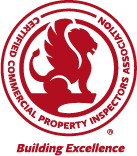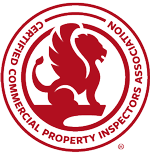CCPIA’s Inspecting Commercial Kitchens Course for Commercial Property Inspectors teaches students how to inspect commercial kitchens in restaurants and other commercial cooking operations. The student will learn about the main systems and components and their common deficiencies.
Commercial Kitchen Inspection Online Course Overview
In Section 1, students will learn about the different types of commercial kitchens and gain an understanding of their operational factors for consideration during an inspection. Additional information about inspection and business considerations are also covered, including inspection insurance coverage and inspection procedures. The inspection procedure follows the International Standards of Practice for Inspecting Commercial Properties (ComSOP). The course reviews its approach and applicableness to the different types of kitchens and teaches how to size-up a space to prepare for a walk-through by locating its defining features.
Commercial Kitchen Hood Inspection Training
Exhaust hoods are a main component in commercial kitchens that every inspector should understand. The course reviews commercial kitchen hood inspection requirements and covers related regulations and codes by the International Mechanical Code (IMC) and National Fire Protection Association (NFPA). A commercial kitchen hood inspection checklist is provided. Students will learn about Type I and Type II exhaust hoods and their related components and common defects to perform a thorough commercial kitchen hood inspection. Students will also learn about other commercial kitchen exhaust features like ducts serving both types of hoods and their termination clearances and exhaust fans.
Appliances are an important feature in commercial kitchens and influence exhaust hoods and systems. A complete guide for identifying appliances and inspecting for their required exhaust systems is provided. This will help students create an appliance inventory and report on safe conditions for grease-producing appliances and non-grease-producing appliances.
Mechanical Systems and Components in Kitchens
The kitchen portion of a commercial property inspection is comprehensive and encompasses elements from plumbing, electrical, and additional HVAC systems. The plumbing portion pertains to backflow prevention, special fixtures (i.e., triple-basin sink, handwash sinks, and service sinks), and grease-control devices. The main grease-control devices reviewed are grease traps and grease interceptors. Students will learn how to take inventory and report on conditions that reflect poor maintenance or potential cross-connections. The electrical portion pertains to common and specialty electrical features, and the HVAC portion pertains to the unique airflow circumstances for adequate ventilation. The course will teach students how make-up air units work and how to perform a thorough inspection of them.
Commercial Kitchen Fire Protection
The last section covers fire protection. This is a critical element for occupant and building safety. The presence of grease and cooking operations can cause detrimental harm if operated without proper fire protection. The main systems and components students learn how to assess include fire suppression systems, manual actuation devices, and class K fire extinguishers.
Additional Course Information
This is a self-paced course. There are quizzes throughout, and students are required to answer all quiz questions correctly before moving on to the next lesson. There is a final exam at the end of the course. Students have an unlimited number of attempts but a time limit of two hours to complete the exam. Upon successful completion and passing the final exam, students will be able to download a commercial kitchen inspection certificate.
CCPIA’s Inspecting Commercial Kitchens Course for Commercial Property Inspectors is designed for commercial property inspectors and students who have a background in home inspection or property or facilities management, kitchen hood inspection, testing and maintenance, as well as people in the commercial construction trades.


